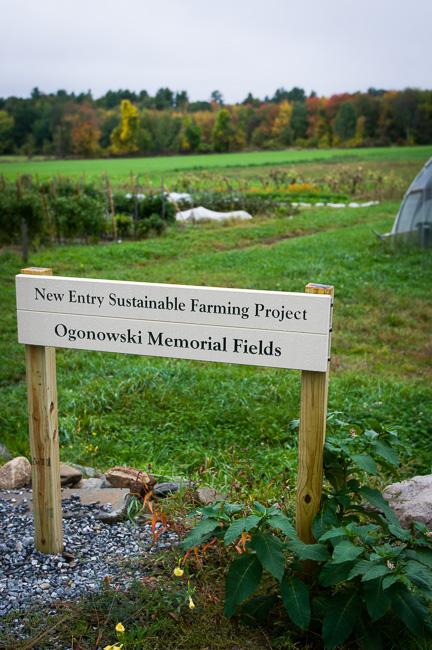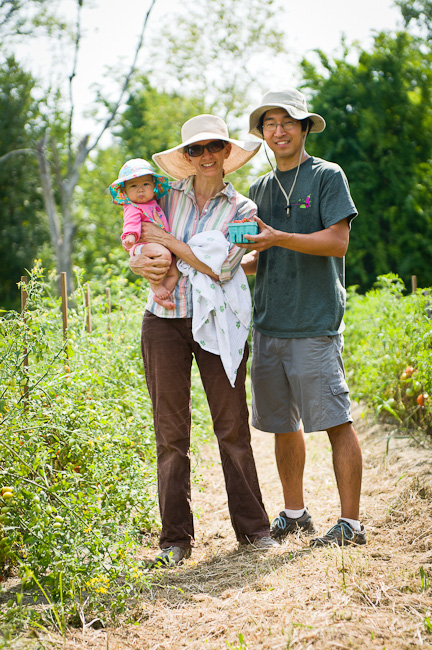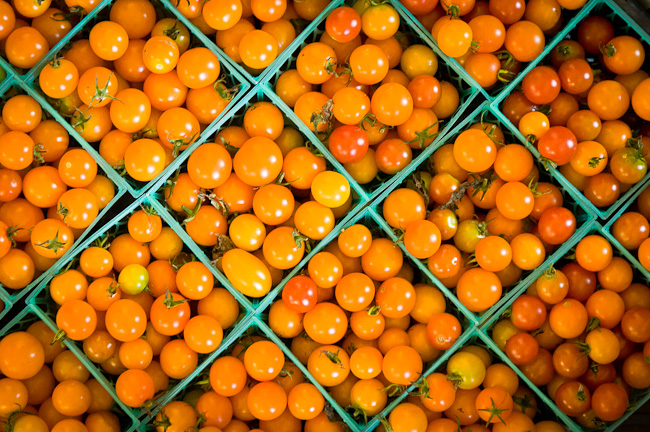In today's blog, I have the distinct pleasure of presenting an interview with Matthew Himmel, the Marketing Manager of World PEAS Cooperative at the New Entry Sustainable Farm Project, here in the Merrimack Valley. The New Entry Sustainable Farm Project's (http://www.nesfp.org/) mission is to assist people with limited resources who have an interest in small-scale commercial agriculture, to begin farming in Massachusetts. World PEAS ("People Enhancing Agricultural Sustainability") Marketing Cooperative primarily sells directly to consumers through a Community Supported Agriculture Program (CSA), with additional sales to institutional food services/restaurants, and at farmers’ markets (in partnership with the United Teen Equality Center).
Complicated, I know! That is also why I decided to interview Matthew and get the real scoop, right from the source. So let's get started!
Matthew Himmel Interview 
Matthew Himmel
* You studied biology and environmental studies at Hamilton College. Are you originally from that area of New York, and did you have interests in farming and local agriculture before going to college?
No, I am actually from around here; I grew up in Lexington. When I was growing up we had a vegetable garden, compost pile and great backyard, so I spent a bit of time outdoors, tinkering in the garden. By the time I graduated from High School I was already very interested in agriculture, and took a year off to travel and work on farms in Central America and Europe. I became confident that I wanted to work in agriculture, but not exactly sure how. I studied biology and geology at Hamilton, studied Permaculture in the summers, worked on research at Cornell in Crop and Soil Sciences and Horticulture, and ultimately found a niche that I love, helping farmers access markets and resources they need to succeed. After trying a few different things out, I have concluded that market-base strategies are essential to creating the healthy, equitable, and sustainable food systems we all want.
* Did you or your family have a background in farming when you were growing up?
My mother emigrated from a small town in Romania, where everyone was subsistence farmers. While I had a very different upbringing, this heritage has influenced me. I still love hearing the stories from my grandmother about how they made sauerkraut to save for the winter, started seedlings in the warmth of a composting manure pile and so forth.
My dad is from New Jersey. He’s definitely had an influence on me too, but less directly in farming. I think I get my systems thinking from him. He uses Excel spreadsheets to do just about everything. Learning Excel from him, has been enormously helpful coordinating farmers for World PEAS.
* What are the goals of World PEAS, NESFP and of the Lowell CSA, and how do they work together?
NESFP is strengthening our local food system by training new farmers (either new to farming or new to the U.S.) and helping them access the resources they need to successfully establish farm businesses. Helping farmers access markets is critical, since the financial viability of farms is essential to their continued existence. While we encourage farmers to have diverse marketing venues, including farmers’ markets, restaurant accounts, etc., we also coordinate cooperative marketing through the World PEAS Cooperative.
 World PEAS helps small farmers connect with local consumers, by coordinating the production of farmers, each of whom may only be growing six crops, to offer customers a diverse bounty of over 70 local fruits and vegetables. The cooperative also packs and delivers produce from all of the cooperative farmers, which is much more efficient than each farmer spending time and fuel making their own deliveries. Consumers also benefit, because they are able to have just-picked freshness, and support small farmers in their community, without having to drive out to each of the farms, and with the convenience of online payment, and a free weekly newsletter with recipes.
World PEAS helps small farmers connect with local consumers, by coordinating the production of farmers, each of whom may only be growing six crops, to offer customers a diverse bounty of over 70 local fruits and vegetables. The cooperative also packs and delivers produce from all of the cooperative farmers, which is much more efficient than each farmer spending time and fuel making their own deliveries. Consumers also benefit, because they are able to have just-picked freshness, and support small farmers in their community, without having to drive out to each of the farms, and with the convenience of online payment, and a free weekly newsletter with recipes.
* Is the main objective of NESFP to train farmers, or is it to provide resources for them to get started? Or are some of the farmers very experienced?
New Entry works with farmers with varying levels of experience and resource needs. Many of the immigrant and refugee farmers we work with have decades of experience farming in their homeland, but are less familiar with the local climate and markets, and may also need help accessing land and other key resources. Others come to the program with very little or no farming experience.
We have recently seen a rise in the number of American-born applicants looking to get into farming for the first time. They may need more help with production skills and land access, but are often more familiar with trends in the local market, through their observations at farmers’ markets, supermarkets, etc.
 We also work with farmers who have some experience farming in the U.S. Some a single Field Training to learn about a single production topic, such as organic pest management, others may wish to re-vise and formalize their business plan through our Farm Business Planning Course. Others come to New Entry for our Farmland Matching Service, so they can find available land to farm.
We also work with farmers who have some experience farming in the U.S. Some a single Field Training to learn about a single production topic, such as organic pest management, others may wish to re-vise and formalize their business plan through our Farm Business Planning Course. Others come to New Entry for our Farmland Matching Service, so they can find available land to farm.
* How many share holders did the CSA have this past summer, and how did it compare to previous years?
Last year, the World PEAS Community Supported Agriculture (aka CSA or farm share) program, which is our largest market, provided weekly boxes of fresh produce to 425 households throughout the greater Lowell and Boston areas.
The CSA and World PEAS in general have been growing rapidly over the past couple of years. When I started in 2008 we had 100 shares. We’ve been adding about 100 every year since, as well as additional markets.
* Is the CSA self-sustaining? Do the farmers all make a profit?
As of 2010, the World PEAS Cooperative achieved financial solvency. We are really proud of this achievement, and feel that our success demonstrates the efficacy of this model to other farmer groups and organizations.
We cover our costs by charging a commission on sales, a little over 20%. This still leaves farmers with much higher prices than they would receive through most other markets, because it is a pretty direct and efficient value chain. Unlike traditional channels, produce doesn’t change hands several times, and there are no expensive warehouses and supermarkets to maintain and power. Farmers can still get better prices selling directly to customers at Farmers’ Markets, and many do. But many of the farmers in the program have other jobs, don’t speak English very efficiently, or have volume that are too small to justify going to a market on their own. World PEAS provides another market.
 Whether farmers’ make a profit is dependent on how well they manage their farm. There are a lot of expenses, including seeds, land rental, water, fertilizers, organic pesticides, tractor rental, gas, etc. Farmers need to plan their production to make the most efficient use of these resources, and make sure they can sell what they grow. Often times farmers in the program break even their first season, and increase their profits in subsequent years.
Whether farmers’ make a profit is dependent on how well they manage their farm. There are a lot of expenses, including seeds, land rental, water, fertilizers, organic pesticides, tractor rental, gas, etc. Farmers need to plan their production to make the most efficient use of these resources, and make sure they can sell what they grow. Often times farmers in the program break even their first season, and increase their profits in subsequent years.
* Is the land generally lent or leased, and to NESFP or to the individual farmers?
New Entry manages a three incubator farm sites in Dracut where farmers can rent land and equipment. We have various arrangements in each case. Our Farmland Matching Service typically helps arrange direct leases with farmers.
 * Are there any long-range plans that any of the various organizations that you work with have in the works?
* Are there any long-range plans that any of the various organizations that you work with have in the works?
Having achieved many of the goals we set several years ago, we are in the midst of another round of strategic planning. Having built up a suite of successful programs New Entry is well poised to expand in a variety of directions. It will be exciting to see how things develop.
++++++++++++++++
Registration for the World PEAS CSA is now open. For more information, visit http://www.worldpeascsa.org/.
If you have questions about World PEAS or for further information about the Training Program, please call the office at 978-654-6745.
































